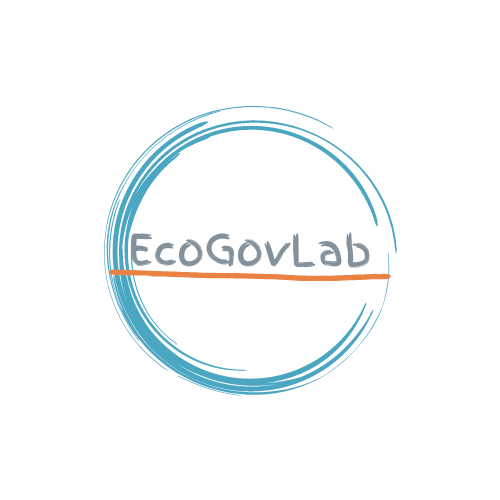When? Wednesday, November 19
Los Angeles 4:00 pm | Mexico City 6:00 pm | New York 7:00 pm | São Paulo 9:00 pm |
Taipei 8:00 am | Seoul 9:00 am | Tokyo 9:00 am | GMT 12:00 midn
RSVP here
Please join us for an open seminar with the authors of “A Call for Multilingual Inclusiveness in Science and Disaster Research” – recently published in the Journal of Disaster Studies (JDS). The event is co-hosted by JDS and University of California Irvine EcoGovLab.

Authors
Rodolfo Hernandez (Howard University, US) | Jen Henderson (Texas Tech University, US) | Kim Fortun (University of California Irvine, US)
Discussants
Wen-Hua Kuo (National Yang Ming Chiao Tung University, Taiwan), Noela Invernizzi (Federal University of Paraná, Brazil), Leandro Rodriguez Medina (Universidad Autónoma Metropolitana-Azcapotzalco, Mexico)
Multilingualism in science is crucial for stimulating knowledge production, circulation, and dissemination. It enriches disciplinary frames and perspectives on societal issues, reflecting the cultures and ontologies of scientific communities and their engagement with local agendas. It is also a key issue of social justice and linguistic human rights because it expands the participation and dialogue among diverse communities of scientists and influences stakeholders who use science to address urgent global issues. Systematic and sustained implementation of multilingual scholarly communication and peer-reviewed publishing is cumbersome for journal management platforms, research teams, and editorial boards. Organizational and technical tasks usually override investment in diversifying frames and perspectives in journals, books, and conferences. Despite critiques of monolingualism and serious commitments to disseminate research output across different geographies, disaster research has continued to be conceptualized and communicated primarily in English. There is an enormous challenge in revising the categories that have shaped disaster management and communication, as well as standard practices of translation and interpretation that have magnified the vulnerability experienced by ethnic minorities and non–English speaking groups. This Research Note attempts to couple current views on multilingualism in science and disaster studies and proposes the first statement of the Journal of Disaster Studies (JDS) on inclusive multilingualism. The JDS Editorial Collective hopes this initiative will foster further investment in multilingualism across disaster research and publishing.
El multilingüismo en la ciencia es crucial para estimular la producción, circulación y difusión del conocimiento. Enriquece los marcos disciplinarios y las perspectivas sobre cuestiones sociales, reflejando las culturas y ontologías de las comunidades científicas y su compromiso con las agendas locales. También es una cuestión clave de justicia social y derechos humanos lingüísticos porque amplía la participación y el diálogo entre comunidades diversas de científicos e influye en grupos de interés que utilizan la ciencia para abordar problemas mundiales urgentes. La implementación sistemática y sostenida de la comunicación académica multilingüe y la publicación revisada por pares es, sin embargo, engorrosa para las plataformas de gestión de revistas, equipos de investigación y consejos editoriales. Las tareas organizativas y técnicas suelen primar sobre la inversión en la diversificación de marcos y perspectivas en revistas, libros y conferencias. A pesar de las críticas al monolingüismo y de los serios compromisos para difundir los resultados de la investigación en diferentes zonas geográficas, la investigación sobre desastres se ha seguido conceptualizando y comunicando principalmente en inglés. Hay un enorme desafío relacionado a revisar las categorías que configuran la gestión y comunicación de desastres, así como las prácticas habituales de traducción e interpretación, que a menudo han magnificado la vulnerabilidad experimentada por minorías étnicas y grupos no anglófonos. La presente nota de investigación intenta aunar las opiniones actuales sobre el multilingüismo en la ciencia y los estudios de desastre, y propone la primera declaración del Journal of Disaster Studies (JDS) sobre el multilingüismo inclusivo. El Colectivo Editorial del JDS espera que esta iniciativa fomente una mayor esfuerzo en el multilingüismo en la investigación y publicación sobre desastres.
과학 분야의 다언어 구사 능력은 지식 생산, 유통, 전파를 촉진하는 데 매우 중요하다.과학 공동체의 문화와 존재론, 지역 의제에 대한 참여를 반영하여 사회 문제에 대한 학문적 틀과관점을 풍부하게 하기 때문이다. 또한 다양한 과학자 공동체의 참여와 대화를 확대하고 긴급한전지구적 문제를 해결하기 위해 과학을 사용하는 이해관계자들에게 영향을 미치기 때문에사회 정의와 언어 인권의 핵심 문제이기도 하다. 그러나 다언어 학술 소통과 동료 심사 출판을체계적이고 지속적으로 구현하는 것은 학술지 관리 플랫폼, 연구진, 편집위원회에게 번거로운일이다. 이에 조직적이고 기술적인 업무가 저널, 책, 학술대회의 틀과 관점을 다양화하기 위한투자보다 우선시되는 것이 일반적이다. 단일 언어주의에 대한 비판과 다양한 지역에 연구 결과를보급하려는 많은 노력에도 불구하고, 재난 연구는 주로 영어로 개념화되고 전달되어 왔다. 소수민족과 비영어권 집단이 겪는 취약성을 확대해오기도 한 번역 및 통역의 표준 관행뿐만 아니라재난 관리 및 소통을 형성해온 범주를 수정하는 것은 여전히 엄청난 도전이다. 본 연구노트는과학과 재난 연구에서 다언어에 대한 현재의 견해를 결합하고 포용적 다언어에 대한 재난학 저널(JDS)의 첫 번째 성명서를 제안한다. 재난학 저널 편집위원회는 본 이니셔티브가 재난 연구 및출판 전반에 걸쳐 다언어에 대한 투자를 촉진하기를 희망한다
Contact: Kim Fortun, kfortun@uci.edu

